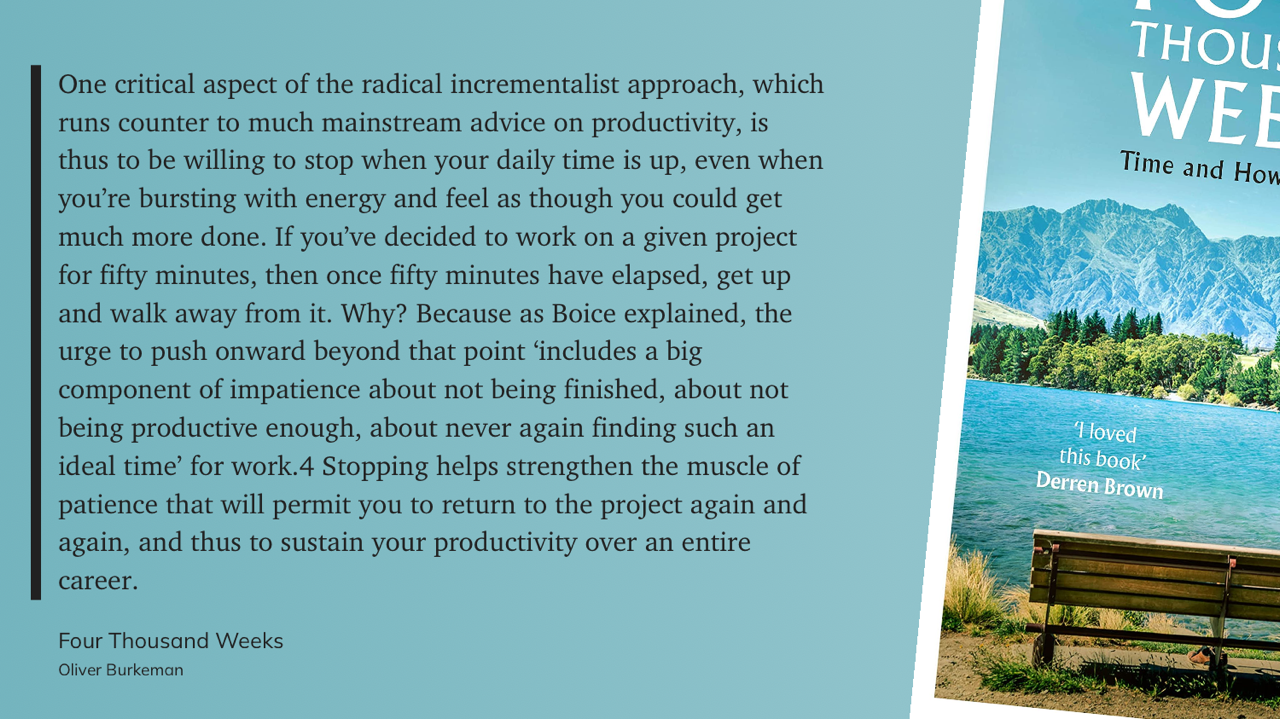Week 2, 2025 - Boot Up

Welcome back! I hope you had a great wind down and are starting the new year with energy and optimism. I managed to step back a bit from this site, turn work off a bit, recharge, and think about what I want to do in 2025.
On the podcasting front, Jeremy and I closed the year with the last episode of Season 2 of our podcast, The Retrospective. The topic we chose was intentionally seasonal: we talked about taking breaks. I think it’s worth a listen even after the holidays, because, without spoiling too much, one of our main points is that vacations are just a small part of the puzzle of recharging and resilience. Check the episode out here and stay tuned for Season 3!
The organizers of the Craft Mini conference published the recordings of the event, so if you haven’t been there, you can watch me talk about staying relevant as a developer. The topic was huge, so instead of a single driving concept, I tried to incorporate a few areas, adding some personal experiences to illustrate my points.
📋 What I learned this week
I love to work with efficient tools. Abraham Lincoln said, “Give me six hours to chop down a tree and I will spend the first four sharpening the axe.” Or something like that. While there is a real trap in spending time perfecting the tool instead of doing the actual work, there was one area where I felt a need to invest in infrastructure: time management.
I wrote about my concentration struggles earlier, and one of the things I mentioned as a remedy, something I used with success from time to time, is the Pomodoro technique. Having multiple things to work on, while lacking stakeholders to help prioritize, I need to ensure I spend the little time I have on the most impactful areas — and timebox the effort efficiently. Pomodoro is great to help with both, and I find having to take explicit breaks between sessions important too. There’s a great quote from the 4000 Weeks book that explains the importance of stepping away, even if it means interrupting a flow state:

(See my review of this book here.)
Besides strengthening this muscle of patience, I found that short pauses, stepping away while the work is not done, helps not just my resilience, but also to gain perspective and decide if what I’m doing is really important, useful, and timely. More than once I found myself in an exciting, but not very important rabbit hole, of which it was easier to get out of with the help of a forced break.
I started with the most basic Pomodoro tool, a timer on my watch, but the features of more complex applications like Session are intriguing. I’d love to have a running log of my work sessions, so I can correlate their success, productivity, and similar aspects with other health and habits data. I’m also expecting that the log of how much time I spent on various areas will be an important input for further planning and prioritization. I’ll report back how this worked out for me.
🎯 What I want to try next week
It’s been almost a year since I started to build this site and newsletter, and I’m going to need to do a proper retrospective soon. One thing is already clear though: I want to be more focused on what professional services I’m providing, as this is missing from the content so far. I’m best at, and most motivated to help ambitious developers and less experienced engineering managers succeed in technical leadership, and it’s time to try making this offering more explicit and turn it into a business. The result will probably be a separate product from this site - I’ll follow up in an update when I have something concrete.
Meanwhile, I’d be grateful to hear what is it that you’re getting from this newsletter, if there’s an article that helped you or something you’d like to see more of. Just hit reply on this mail and let me know - it’s a tremendous help in planning the future of my content. Thank you!
🤔 Articles that made me think
Systems Thinking in Factorio
I like this recent article from Grant Carver about systems thinking and how it shows up in the game Factorio. He draws parallels between optimizing a virtual factory and building complex software systems - both need you to recognize and understand patterns, dependencies, feedback loops, etc. While I never played this particular game, I found games in general can be useful not just for fun but for practicing the kind of holistic thinking engineering leaders rely on daily, similar to Homelabbing, or other techie hobbies.
Advent of Code Survey Results
It’s interesting to watch survey results on this fun game (that I had to abandon this year after a few days due to a small injury that prevented me from spending too much time at the computer). The respondents are from a small and very specific cohort, but there are still two interesting data that surprised me:
- The thoughts on AI and LLM use for the game are very negative, even worse than last year. I guess I understand the frustration, but I’m partial to this. Sure, automated solution spamming like we saw in 2023 can definitely be considered cheating, but if you don’t code for a living and do this for fun only, why not use the most efficient tools that allow you to focus on the problem and not the syntax of a three-dimensional array?
- The top 2 languages used for solutions, covering more than half of the responders, are Python 3 and Rust (41% and 16% respectively). Not much change from last year here - there is a surprise though, that JavaScript fell back from third place, now lagging behind C++, C#, Go, and Java. TypeScript is slowly growing behind JS.
How recruitment will change in 2025
Nine executives from companies like PwC, Hilton, and EY predict that AI will dramatically reshape hiring, with more focus on skills-based hiring and potential over traditional experience. It's interesting to see how fast things change. In May 2024, when I co-wrote an article about the Perfect CV for an Engineering Manager with my recruiter friend Péter Batiz, we noted that despite rumors and clickbait-y articles, we hadn't seen much AI in hiring pipelines. Not even a year later, it's clearly the direction we're heading. CVs will need to show concrete skills and impact rather than just titles and responsibilities. I believe the rapidly changing environment favors generalist engineering leaders. Those who can adapt quickly and are eager to learn new things will thrive better than deep specialists who are resistant to change.
That’s it for today, enjoy the longer days this weekend if you’re in the northern hemisphere,
Péter